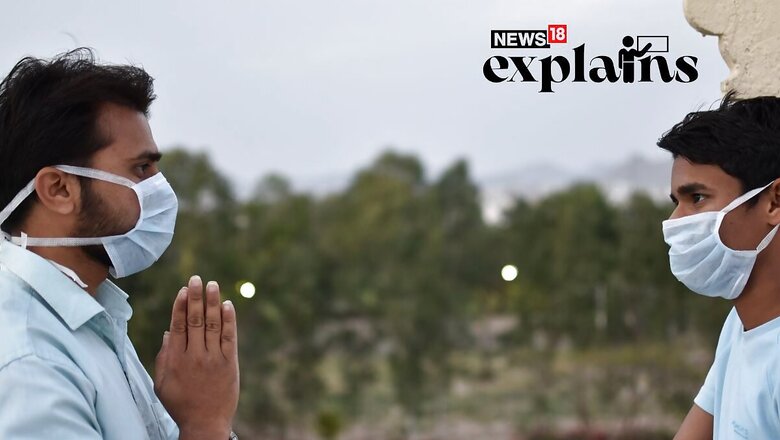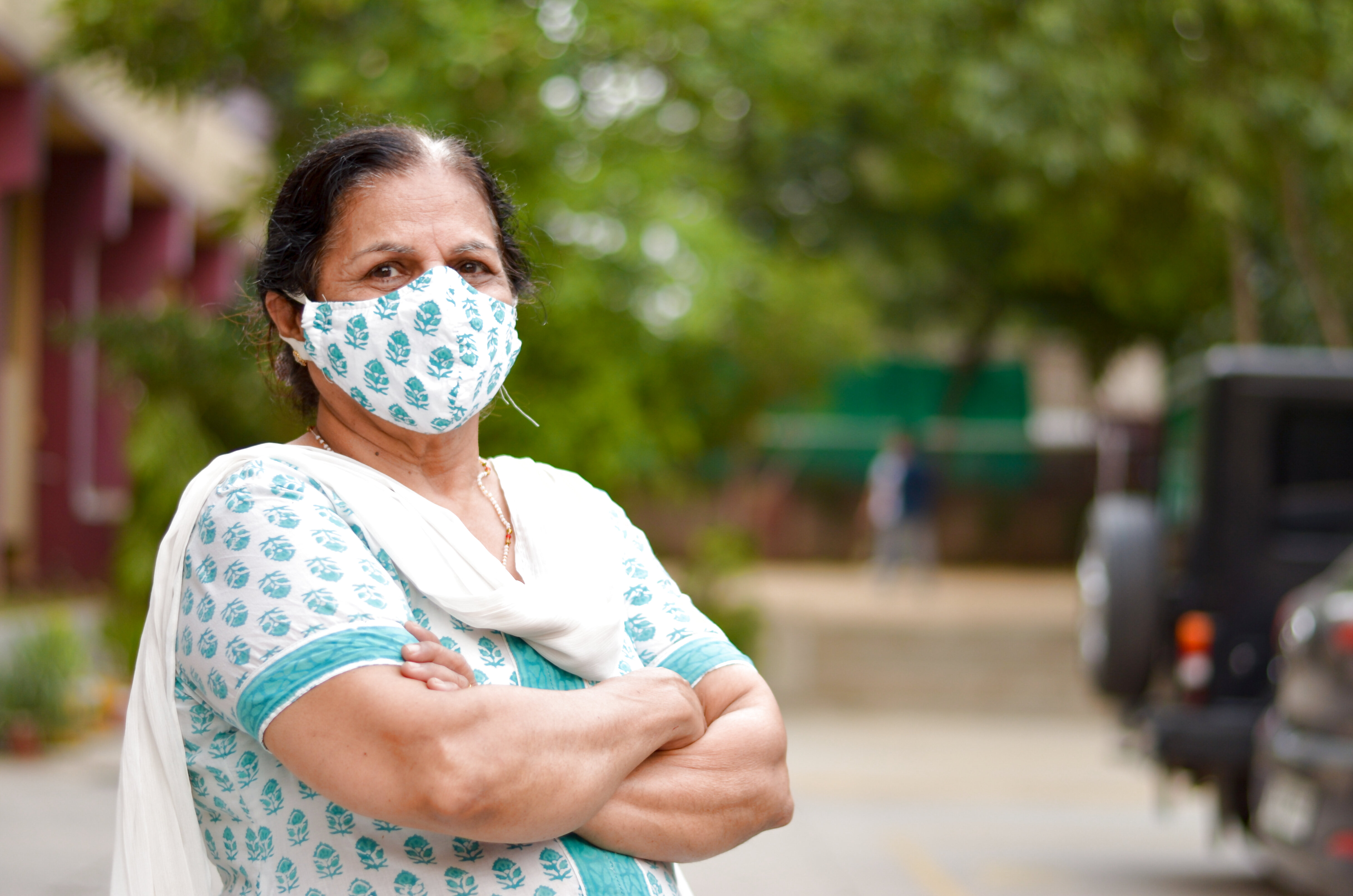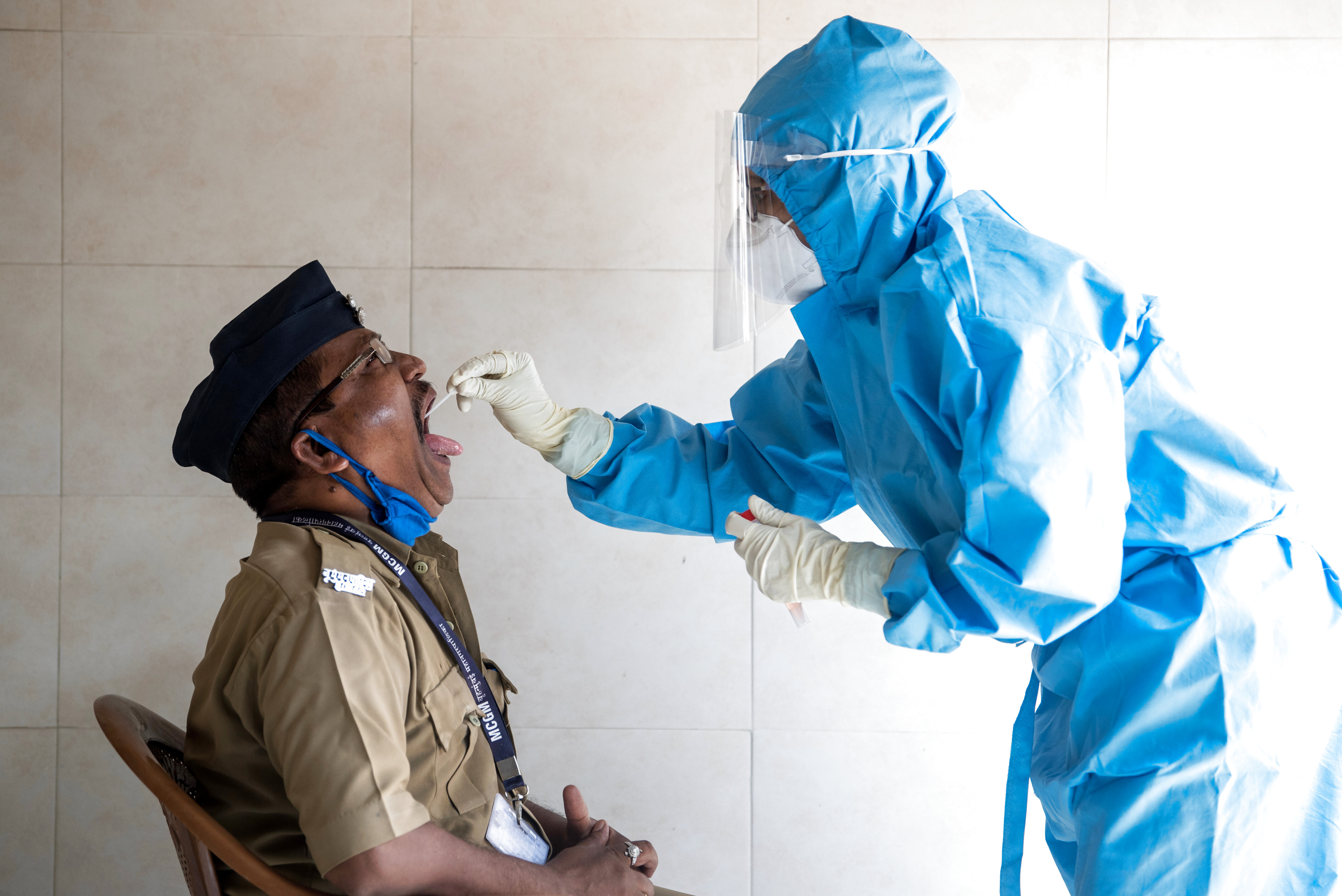
views
India logged 5,357 new coronavirus cases, while the active cases rose to 32,814, according to the Union Health Ministry data updated on Sunday.
The death toll has increased to 5,30,965 with 11 deaths. While three deaths were reported from Gujarat, two were from Himachal Pradesh and one each from Bihar, Chhattisgarh, Maharashtra, Odisha and Uttar Pradesh besides one reconciled by Kerala, the data updated at 8 am stated.
The Covid case tally was recorded at 4.47 crore (4,47,56,616) The active cases now comprise 0.07 per cent of the total infections, while the national COVID-19 recovery rate was recorded at 98.74 per cent, the ministry said.
With fears high, it is not an uncommon site to witness people without masks on streets, at crowded places now. After three years of the pandemic, while mask fatigue and pandemic fatigue is usual and not unprecedented. A good vaccination coverage in the country along with bouts of reinfection have slowed spread. Still, one must ensure following these norms, albeit in more sustainable ways, to avoid getting and spreading the infection.
Here’s a refresher on Covid-19 guidelines to help you stay safe:
Masks
Masks were one of first defences against Covid-19 when it emerged two years ago. While N-95 masks are generally agreed to be the most protective against the virus, people also switched to cloth masks to protect themselves.
Why a Mask Though?
Wearing masks, along with other Covid-19 precaution can help combat against the risk of infection. The virus enters through a person’s eyes, nose and mouth, and it helps to at least shield two of these areas while entering crowded zones. At the height of the second wave in India, and for immuno-compromised people, wearing face shields was also common.
What Mask Should You Pick?
According to the Centre for Disease Control in the US, KN95 masks are the most effective in preventing infections. These are mostly used for surgical purposes but have become common for general use through the pandemic. Normal surgical masks are also a good option. Cloth masks are the least preferred but do offer some degree of protection to the user if worn correctly.

The Basics of How to Wear a Mask:
According to the WHO, these are some basic things one must take care of while wearing a mask:
Clean your hands before you put your mask on, as well as before and after you take it off, and after you touch it at any time.
Make sure it covers both your nose, mouth and chin.
When you take off a mask, store it in a clean plastic bag, and every day either wash it if it’s a fabric mask, or dispose of a medical mask in a trash bin.
Don’t use masks with valves.
Distancing
Social distancing is also an important rule to prevent spread of the infection. “Social distancing is a non pharmaceutical infection prevention and control intervention implemented to avoid/decrease contact between those who are infected with a disease causing pathogen and those who are not, so as to stop or slow down the rate and extent of disease transmission in a community. This eventually leads to decrease in spread, morbidity and mortality due to the disease,” the Ministry of Health says.
The same logic applies to enforcing lockdown amid heights of waves to limit the interaction of those with Covid-19 with those uninfected.
Six feet is an ideal distance that one can maintain with a stranger in a public environment to limit the risk of Covid-19. One should also ideally make the effort to avoid crowded surroundings, limiting outings. Over the course of the pandemic, various establishments (public and private) have inculcated norms such as separating seats, creating social distancing ‘circles’ to help people maintain a distance from one another. However, the onus also falls on citizens to make use of these provisions.

After the pandemic, experts stressed upon regularly sanitising hands in case one does not have easy access to wash their hands. As the virus can stay on at surfaces for days, it becomes likely to pick it up while touching surfaces. In that scenario, washing our hands regularly becomes the best bet to avoid picking up the infection.
According to the CDC, it’s especially important to wash your hands:
- Before eating or preparing food
- Before touching your face
- After using the restroom
- After leaving a public place
- After blowing your nose, coughing, or sneezing
- After handling your mask
- After changing a diaper
- After caring for someone sick
- After touching animals or pets
If soap and water are not readily available, use a hand sanitizer that contains at least 60% alcohol. Cover all surfaces of your hands and rub them together until they feel dry. Avoid touching your eyes, nose, and mouth with unwashed hands, the CDC says in its guidelines.
Vaccination
Get your third shot! If you still haven’t received your booster vaccine, book an appointment. When it comes to getting vaccinated against a disease like COVID-19, booster shots can be a standard part of the procedure.
The term “booster” refers to an additional dose of a vaccine given after the initial (or primary) dose. According to Sandy Salverson, PharmD, vice president of Pharmacy Operations at OSF HealthCare, these boosters can occur weeks, months, or years later.
“Most adults recall having to get a booster shot for a childhood disease like measles, whooping cough, or meningitis. Or for a disease like tetanus, where booster shots are recommended every ten years as the original immunity deteriorates,” Sandy explained.
How Does This Help?
Some vaccines are administered with the original (or primary) dose followed by a booster dose. The original dose primes the immune system to recognise and produce antibodies against the virus against which it was designed to defend.
Booster shots are given to the body’s immune system to remind it of the virus it needs to defend against. This strengthens or boosts the immune system.
Covid boosters are also said to be extremely helpful for risk groups – the elderly or those with immunity compromising diseases.
How Can I Get a Booster in India?
You can check your nearest health care centre or private health facility for availability of doses. In India, the same Covid-19 vaccine is administered as your primary and secondary dose.
Other Ways
While regularly checking for Covid-19 and its symptoms, testing and vaccination is most important, it is also crucial to build up your immunity.
Regular exercise and a close watch on food is important to keep healthy. Immunity-building foods are also important in the fight against Covid-19. The Central Council of Research in Ayurvedic Science of the Ministry of AYUSH had also conducted a trial to see if Ashwagandha, a popular herb in the Ayurvedic system of medicine, can help improve the protection provided by anti-Covid vaccines.
Some guidelines recommended by the Ministry of AYUSH:
General Measures
- Drink warm water throughout the day.
- Daily practice of Yogasana, Pranayama and meditation for at least 30 minutes
- Spices like Haldi (Turmeric), Jeera (Cumin), Dhaniya (Coriander) and Lahsun (Garlic) are recommended in cooking.
Ayurvedic Immunity Promoting Measures
- Take Chyavanprash 10gm (1tsf) in the morning. Diabetics should take sugar free Chyavanprash.
- Drink herbal tea / decoction (Kadha) made from Tulsi (Basil), Dalchini (Cinnamon), Kalimirch (Black pepper), Shunthi (Dry Ginger) and Munakka (Raisin) – once or twice a day. Add jaggery (natural sugar) and / or fresh lemon juice to your taste, if needed.
- Golden Milk- Half tea spoon Haldi (turmeric) powder in 150 ml hot milk once or twice a day.
Simple Ayurvedic Procedures
- Nasal application – Apply sesame oil / coconut oil or Ghee in both the nostrils (Pratimarsh Nasya) in morning and evening.
- Oil pulling therapy- Take 1 table spoon sesame or coconut oil in mouth. Do not drink, Swish in the mouth for 2 to 3 minutes and spit it off followed by warm water rinse. This can be done once or twice a day.
During dry cough / sore throat
- Steam inhalation with fresh Pudina (Mint) leaves or Ajwain (Caraway seeds) can be practiced once in a day.
- Lavang (Clove) powder mixed with natural sugar / honey can be taken 2-3 times a day in case of cough or throat irritation.
- These measures generally treat normal dry cough and sore throat. However, it is best to consult doctors if these symptoms persist.
This article is not meant to be a substitute to professional medical advice. If you are experiencing Covid-19 symptoms, visit your nearest healthcare provider.
Read all the Latest Explainers here

















Comments
0 comment